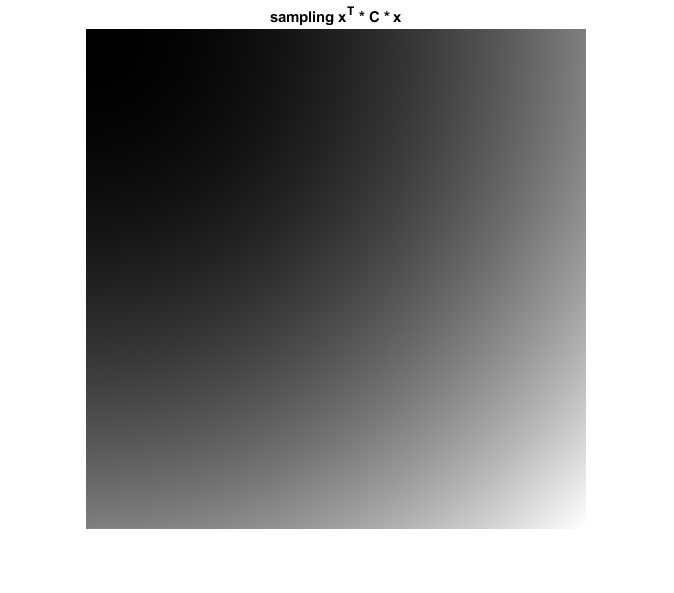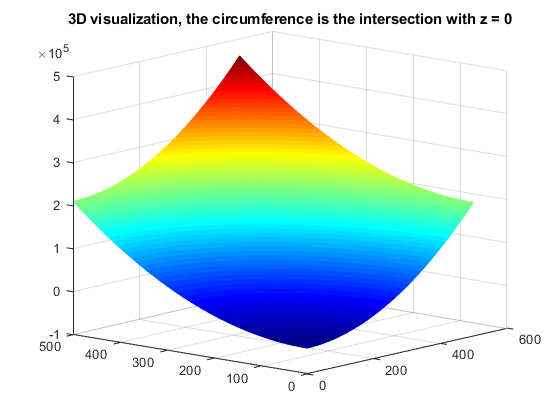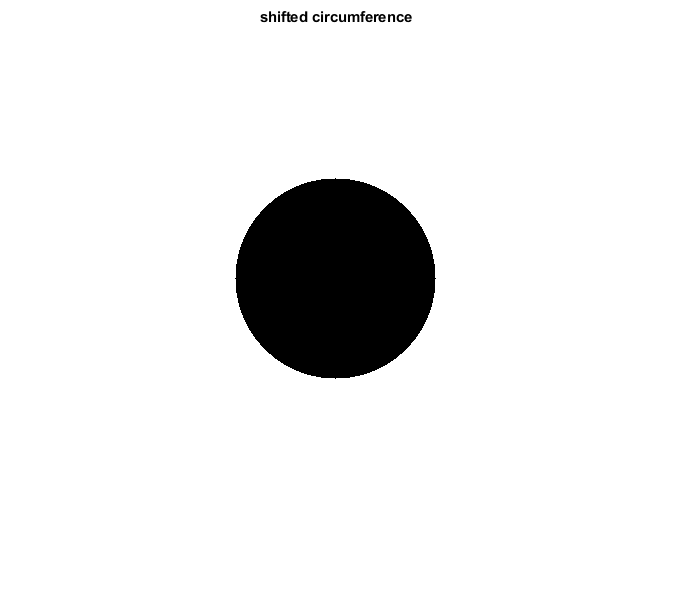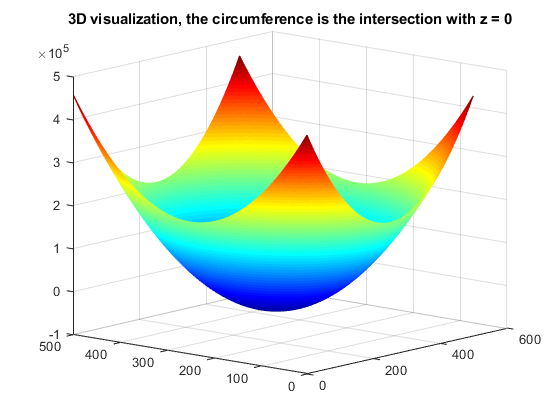Contents
Basic experiments with conic sections in homogeneous coordinates
clc
clear
close all
Define a circumference
Let's define circumference centered in 0,0 with radius 200 x^2 + y^2 = 200^2 % circumference
r=200 C=[1 0 0; 0 1 0; 0 0 -r^2] % or more in general... a = 1; b = 0; c = 1; d = 0; e = 0; f = -r^2; C=[a, b/2, d/2; b/2, c, e/2; d/2 e/2 f]; % the conic equation is x'Cx = 0
r =
200
C =
1 0 0
0 1 0
0 0 -40000
sample the conics
we evaluate x'*C*x at different points in the plane (here pixels) x * C * x' = 0 is the incidence relation
im = zeros(500, 500); for ii = 1 : 500 for jj = 1 : 500 im(ii, jj) = [jj, ii, 1] * C * [jj; ii; 1]; end end
visualization
% Show the actual values at each pixel: the smallest value will be black % and the biggest one will be white. figure(), imshow(im,[]), title('sampling x^T * C * x'); % We are interested in where the values are greater than zero or less than % zero. Points "inside" the circumference yield values that are negative % outside instead the values are positive figure(), imshow(im>0), title('outside the circumference') % the values of x'*C*x identify a 3D paraboloid whose intersection with the % plane z = 0 gives the circumference (the same holds for other conics) figure(), mesh(im), title('3D visualization, the circumference is the intersection with z = 0') colormap jet view(gca,[-49.5 13.2]);



Some transformations
Let's move the circumference to the center of the image, and scale it to half size. We will build a similarity transform
t=[250 250]'; % translation s=0.5; % scale factor Similarity = [s * eye(2) t; 0 0 1];
We transform the conic...
Cprime=inv(Similarity)'*C*inv(Similarity);
.. and we draw it as before:
im=zeros(500,500); for i=1:500 for j=1:500 im(i,j)=[j i 1]*Cprime*[j i 1]'; end end imshow(im>0), title('shifted circumference') figure(), mesh(im), title('3D visualization, the circumference is the intersection with z = 0') colormap jet view(gca,[-49.5 13.2]);


Obviously, the line at the infinity is unchanged by our similarity
inv(Similarity)'*[0 0 1]'
ans =
0
0
1